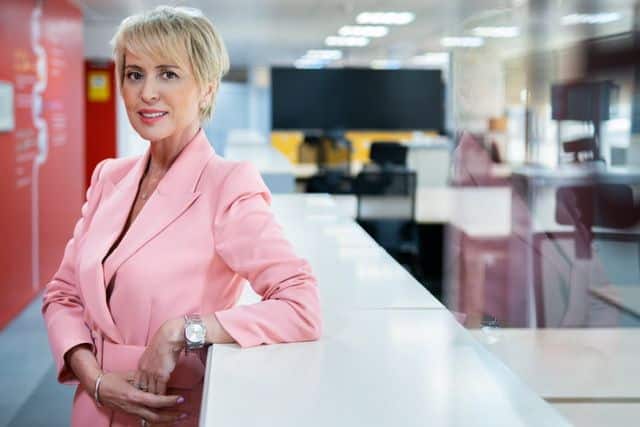Carme Artigas was speaking at Portuguese Association for Communications Development
In an interview with Lusa, Carme Artigas, the co-chair of the UN’s High-Level Advisory Body on Artificial Intelligence, suggests that attempts at disinformation are making people believe in nothing (see top story to come).
Spain’s Secretary of State for Digitalisation and Artificial Intelligence (AI), Carme Artigas, was just one of the speakers at the recent 33rd APDC (Portuguese Association for Communications Development) Congress in Lisbon.
Disinformation, she said, did not arrive with artificial intelligence.
Attempts to “undermine someone’s reputation have always existed, but the scale of the impact and the ability to reach” is now “great – and with generative AI, what happens is that it is difficult to distinguish what is true.
“I always say that the most important existential risk for humanity (…) is going crazy because we can’t believe what we see“, and “that’s the real issue: trust. There is a lack of trust,” she said.
And in this sense, attempts at disinformation have moved on from ‘taking people in’ and convincing them that a lie is the truth; people now simply do not trust anything.
“The attempt of disinformation is to undermine the existing infrastructures and democratic values of the society in which we live today,” Artigas explains.
Nonetheless, Spain’s first ever secretary of State for digitalisation and AI believes the role of the media “is more important than ever (…), I think the responsibility of the serious media is not only to deal with ways of verifying (the facts) but also not to amplify hate speech or disinformation because of clickbait”.
And this is the issue (see story to come, again). Not that Carme Artigas ‘rammed the point home’, but there is an enormous difference between ‘the media’ and ‘the serious media’.
Artigas said she recognises that the media faces a major challenge, as the sector is not profitable. This is because “they have lost the battle for attention in favour of platforms, they have lost the battle” for advertising revenue “in favour of Google ads“.
What is left? Battling for survival – very often ‘falling for’ highly-dubious clickbait.
It is a massive problem. “We need profitable media so that they can remain independent“, she told Lusa – and, in this sense, the Media Act – European media law – “is very important”.
“These are today’s challenges. At least we are aware of them,” she added, suggesting she is “more confident today than four years ago”.
Source: LUSA


























